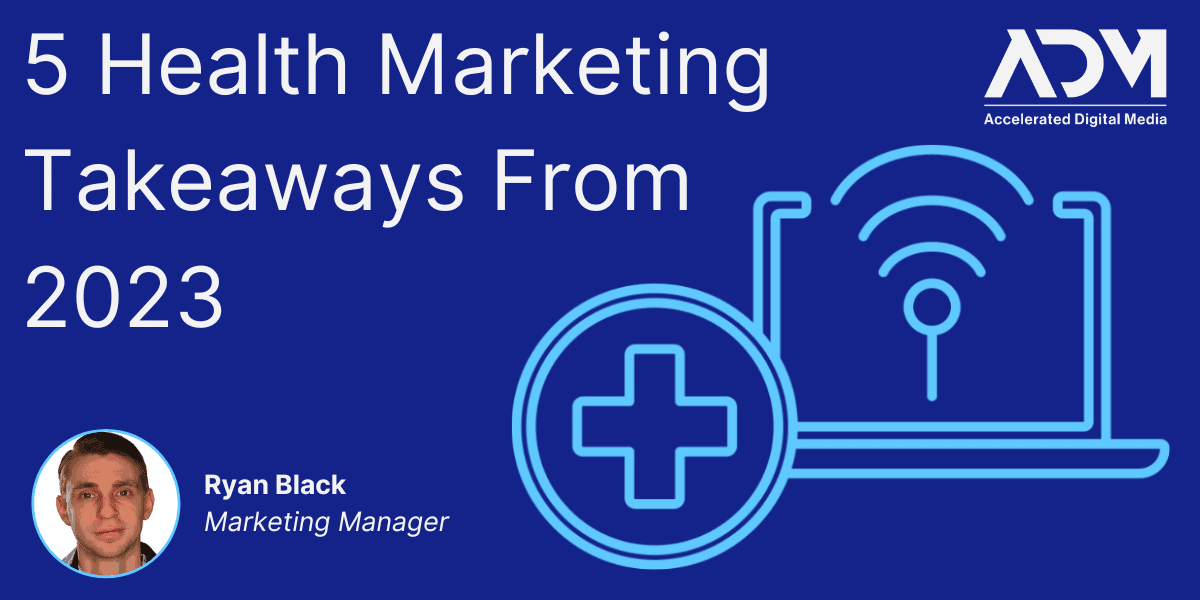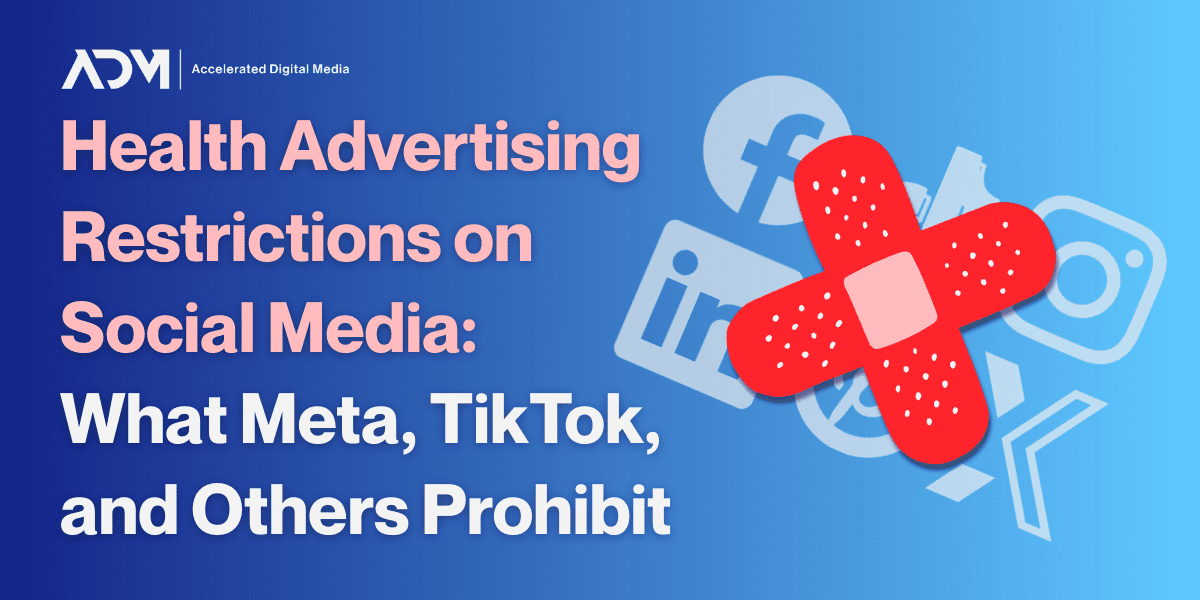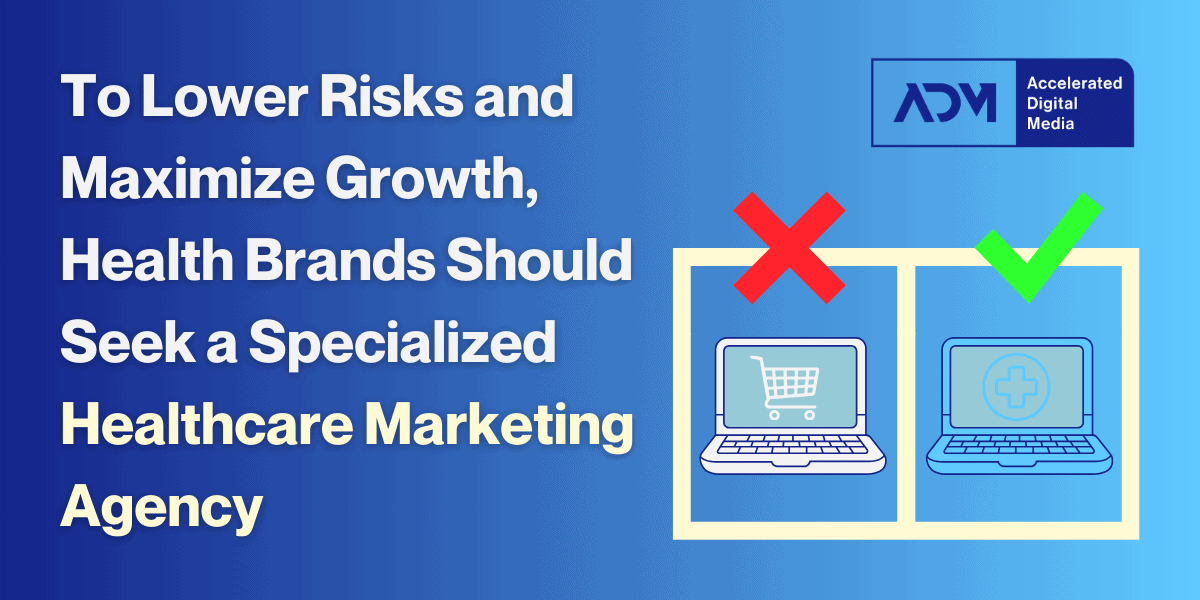Healthcare advertisers faced a challenging and tumultuous year in 2023 as they grappled with the complexities of digital marketing amidst evolving regulations and privacy concerns. It was a year that demanded a thorough evaluation of healthcare advertising strategies to ensure compliance while enhancing visibility. In this blog post, we offer insights into the implications of the new regulatory landscape that every healthcare marketer should be aware of going into 2024.
1. Enforcement Risks Are Significant—and Here to Stay
The Federal Trade Commission brought down multi-million dollar enforcement actions against GoodRx and BetterHelp early in 2023 for violating PHI policies. That set the stage for the reckoning that followed. The industry is now on notice that regulators are looking closely at the intersection of health data privacy and marketing. These penalties are likely to persist and could grow in cost. To avoid heavier penalties than ever before, healthcare marketers must prioritize compliance and remain up-to-date with the latest developments. Advertisers need to ensure that their data sharing practices align with laws governing PHI, such as HIPAA, and safeguard patients’ personal health information.
2. You Should Establish a Health Tracking Compliance Framework
To ensure compliance with PHI laws, healthcare marketers should establish a robust framework for health tracking compliance. This framework will guarantee the trustworthiness and compliance of advertising campaigns. During a summer 2023 webinar, ADM collaborated with data law experts from Faegre Drinker and health data solutions provider FreshPaint to delve into this issue. The panel outlined a comprehensive 5-step process for constructing this framework.
- Establish an Inventory of Tracking Activities
- Analyze the Disclosure of PHI
- Ensure Permissible Disclosure of PHI
- Restrict the Placement of Tracking Technologies
- Perform HIPAA Breach Risk Assessments
Collaboration among IT, legal, and marketing teams is vital to assess if PHI is being disclosed through tracking technologies. It is essential to verify that third-party entities signing BAAs are authorized to disclose PHI under the agreement’s terms.
3. Consider Investing in More Programmatic Advertising
With cookie deprecation on the horizon, programmatic marketing may become a more appealing vertical for companies of all types. For health brands, there are a few reasons it’s already a valuable investment. Contextual targeting requires no cookies or user data collection, but can effectively place your marketing messages alongside content or media—like streaming shows or podcasts—that is relevant to your topic or audience. Meanwhile, healthcare-specific DSPs can offer audience targeting with predictive audiences built using anonymized real world data. Healthcare brands should consider programmatic marketing as an intelligent approach to focus ad targeting and maintain compliance with regulations.
4. Pay Close Attention to Ad Platform Health Policy Updates
Ad platforms are also facing scrutiny for enabling non-compliant health marketing. Meta (Facebook’s parent company), for instance, was already named in class action suits alleging patient privacy violations. Expect the platforms to continue sharpening their policies and attempting to protect themselves legally, so you’ll need to be on alert for your ads to stay compliant with the platforms as well. Google Ads updated its healthcare policy language in October 2023 to expand what entities certain health policies pertain to. Remaining informed about policy changes that could impact campaigns is crucial to avoid ad approval issues and other consequences.
5. Collaborate With Expert Health Marketing Agencies
To navigate the complexities and regulations of the health space, it’s crucial not to trust your marketing to just any agency. Instead, seek a specialized marketing agency with a proven track record in healthcare. For healthcare advertisers aiming to pair improved ROI with better compliance risk mitigation, partnering with such an agency is paramount. They possess expertise in policies, regulations, patient acquisition, and the patient journey, enabling them to develop targeted strategies and create impactful ads that resonate with potential patients. If you’re in search of expert health marketing services, reach out to our team at ADM.
DISCLAIMER
Nothing in this blog should be considered legal advice. This content is for informational use only. Health marketing policy is also evolving quickly, and this blog may not have been updated to reflect any new developments relevant to the situation. If you require legal advice about any of the matters discussed here, we recommend seeking a healthcare privacy attorney.




